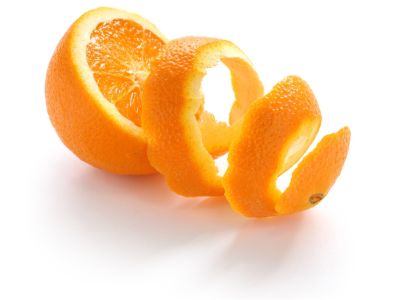We are glad to report that this is absolutely false. Not only can you put citrus peelings in a compost pile, they are good for your compost too.
Composting Citrus Peels
Citrus peelings have gotten a bad rap in composting due in part to the fact that it can take a long time for the peels to break down. You can speed up how fast citrus in compost breaks down by cutting up the peels into small pieces. The other half of why citrus peels in compost was once frowned on had to do with the fact that several chemicals in citrus peels are used in organic pesticides. While they are effective as pesticides, these chemical oils break down rapidly and will evaporate long before you place your compost on your garden. Composted citrus peels pose no threat to the friendly insects that may visit your garden. Putting citrus peels in compost may actually be helpful to keeping scavengers out of your compost pile. Citrus peels often have a strong smell that many scavenger animals dislike. This smell can work to your advantage to keep common compost pests away from your compost pile.
Citrus in Compost and Worms
Though some people think that citrus peels in vermicompost can be harmful to the worms, this is not the case. Citrus peels will not hurt the worms. That being said, you may not want to use citrus peels in your worm compost simply because many kinds of worms don’t particularly like to eat them. Though it is unclear why, many kinds of worms will not eat citrus peels until they have partially decomposed. Since vermicomposting relies on worms eating the scraps you put into their bin, citrus peels simply would not work in vermicomposting. It is best to keep citrus peels in the more traditional compost pile.
Citrus in Compost and Mold
Occasionally there are concerns about adding citrus peels to compost due to the fact that penicillium molds grow on citrus. So, how would this affect a compost pile? At first look, having penicillium mold in a compost pile would be a problem. But there a few things you have to factor in that would lessen the possibility of this problem.
First, a well tended compost pile would simply get too hot for the mold to survive. Penicillium prefers a cooler environment to grow in, typically between an average fridge temperature and room temperature. A good compost pile should be warmer than this. Second, most commercially sold citrus fruit are sold with a mild antimicrobial wax applied. Since penicillium mold is an issue for citrus growers, this is the standard way to prevent mold growth while the fruit is waiting to be sold. The wax on the fruit is mild enough not to affect your entire compost pile (because people have to come in contact with it too and may eat it) but strong enough to prevent the mold from growing on the surface of the citrus.
So, it appears that mold on citrus peels in compost would only be a problem for people who are using homegrown citrus and also using a passive or cool composting system. In most instances, heating up your compost pile should effectively alleviate any future mold issues or worries.
